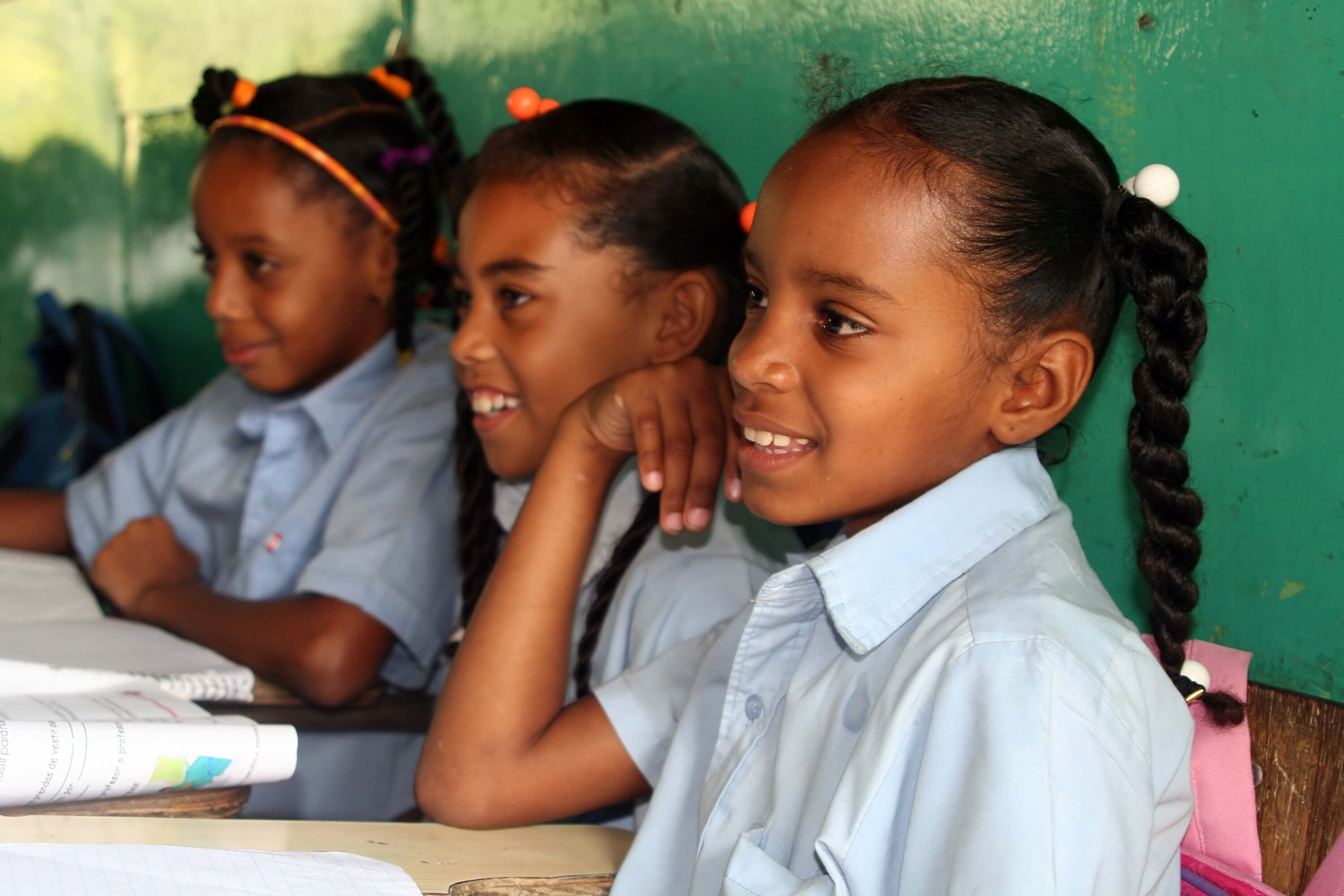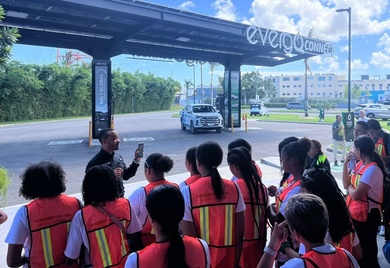IDB World: Citizens Against Corruption, Green Hydrogen, Air Transport

Citizen Monitoring is Combating Corruption in Peru
María Jiménez is determined to put an end to corruption in Peru. The 26-year old economist monitors public works and files reports on irregularities. This can lead to complaints and penalties for construction firms that commit violations. María is participating in a monitoring program called Citizen Control Monitors, comprised of hundreds of volunteers who, like her, have passed competitive exams to become part of the government’s monitoring services.
The program is an anti-corruption initiative run by the Office of the Comptroller General of Peru (Contraloría General de la República del Perú – CGR) and backed by the Inter-American Development Bank (IDB). The CGR is an autonomous entity of the Peruvian government in charge of monitoring the use of public resources. Through the Citizen Control Monitors program, the CGR supervises public works with a budget of up to 10 million soles (approximately $2.7 million).
“If a work is valued at 1 million, it actually costs less. The authorities call this ‘the famous 10 percent,’” explains María, who is aware of the high level of corruption within the construction sector in many countries in the region. In her numerous in-person visits to public works, she has witnessed many irregularities. She explains how cost overruns can be hidden in extra charges for lower-quality paint or cement. “If you use a gallon of paint that costs 25 soles instead of 42 soles, you are spending less than what you are billing,” she said.
Uruguay Provides Green Hydrogen with a Massive Boost
There’s a long-running argument about whether or not green hydrogen will be competitive in 2030. One of the main elements in favor is the cost and profile of renewable energy generation. Uruguay has one of the top renewable electricity matrices in the world, with the capacity to export renewable electricity to its neighboring countries in many periods of the year. Will green hydrogen be an opportunity for Uruguay to continue decarbonizing its economy and even a potential vector for the export of renewable energies?
In accordance with the provisions of the 2018 Intergovernmental Group of Experts on Climate Change report, in order to limit global warming to below 1.5ºC above pre-industrial levels we must achieve net zero global emissions by the middle of the century. To achieve this objective, the decarbonization of the energy sector through electrification powered by renewable energies will be essential.
Technological advances and cheaper renewable energies have made it possible to lower the production costs of green hydrogen (hydrogen produced through the use of renewable energies), and consider it as a viable alternative for decarbonization. Green hydrogen as an energy vector could contribute to, on the one hand, provide storage services for the electricity sector and thus allow greater introduction of less reliable renewable energies such as wind and solar. On the other hand, it could allow the decarbonization of other difficult-to-electrify sectors such as heavy and long-distance transportation or high-temperature industrial processes.
Opportunities for Air Freight Transport in Latin America and the Caribbean
During the flower season, LATAM Cargo ships more than 100 cargo planes with nearly 200 million flowers from Colombia and Ecuador to the United States and the Netherlands. To safeguard the quality of this product, so fragile during transport, the same temperature must be maintained throughout the entire journey; a delicate handling with reduced delivery times is also a must. In Miami, for example, the flowers arrive at the largest cold storage in the cargo operation.
This is an example of the dimension and importance of air freight transport for our region. Air cargo transport is a dynamic market. It mainly serves perishable products with high added value, and / or that need reliable and fast connectivity, be it nationally or internationally. The participation of the countries of Latin America and the Caribbean in the international market for air freight transport is still low. Being 2.8% of the global market in 2019 (IATA, 2020), it’s of strategic importance for several countries such as Brazil, Mexico and Colombia (ACI, 2020). And it presents a great opportunity for diversification of production and of our exports.
To better understand the dynamics and factors that influence this scenario, the IDB has worked on the publication Logistics in Latin America and the Caribbean: Opportunities, Challenges, and Lines of Action.
This document seeks to understand how the air transport of merchandise evolved in 13 countries of the region between 2009 and 2019. It evaluates whether the bilateral and / or multilateral agreements for air transport, known as Air Service Agreements (ASAs), impose restrictions on operations between the countries of Latin America and the Caribbean. The report includes input from the participating airlines of the Latin American Air Transport Association (ALTA) on the quality of the infrastructure and operational processes of air cargo in 30 airports in 26 countries.
LIKE WHAT YOU JUST READ?
Subscribe to our mailing list to stay informed on the latest IDB Invest news, blog posts, upcoming events, and to learn more about specific areas of interest.
Subscribe



